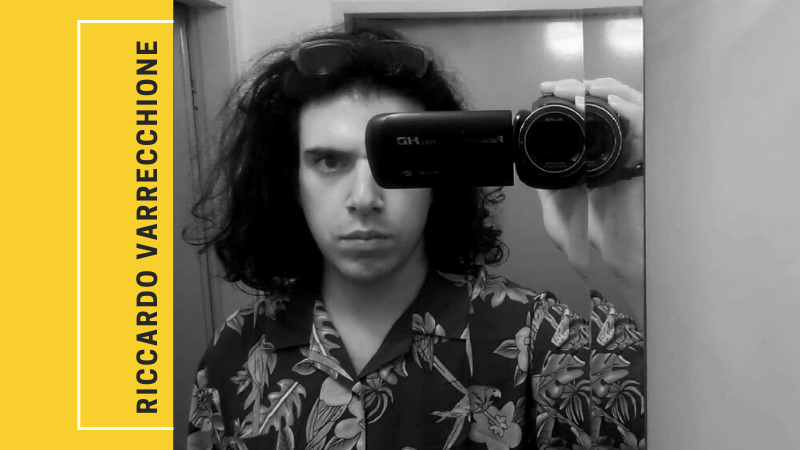Riccardo Varrecchione
Born somewhere in Italy, in 1993. I've been wanting to become a filmmaker since I was 15 years old, however I never did anything in my life that would lead me in that direction, neither I did anything with my life in general, until summer 2022, when I enrolled in a six-week cinematography course at Prague Film Institute. The final result was "Lonesome, Tonight", which, apparently, now allows me to present myself as a filmmaker.
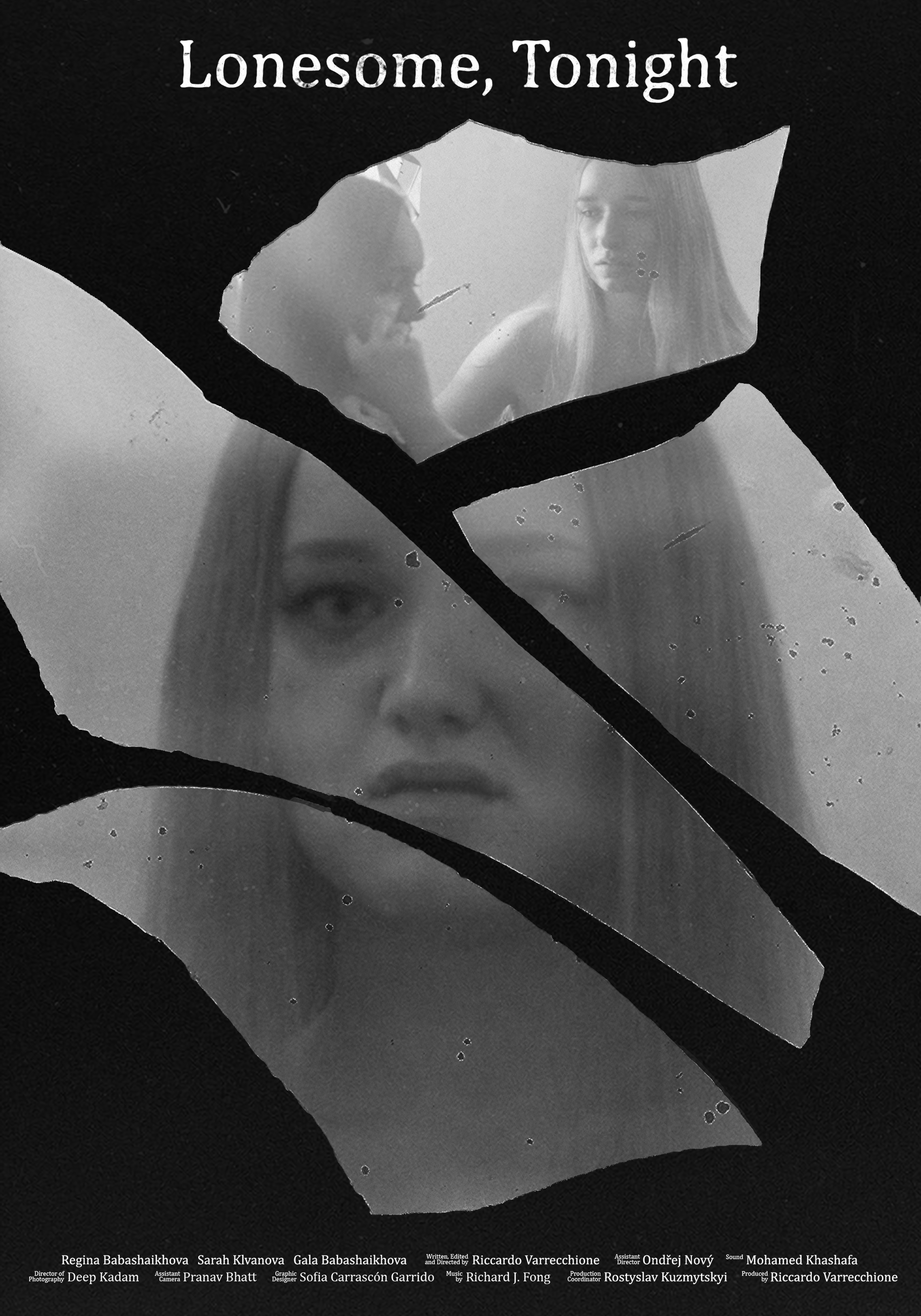
Lonesome, Tonight
Starring:
Regina Babashaikhova
Sarah Klvanova
Gala Babashaikhova
Written, Edited and Directed by:
Riccardo Varrecchione
Assistant Director:
Ondřej Nový
Sound:
Mohamed Khashafa
Director of Photography:
Deep Kadam
Assistant Camera:
Pranav Bhatt
Graphic Designer:
Sofia Carrascón Garrido
Music by:
Richard J. Fong
Production Coordinator:
Rostyslav Kuzmytskyi
Produced by:
Riccardo Varrecchione
Interview with Riccardo Varrecchione
1. Your project takes a part in our festival. What is your project about?
A girl tries to find a way to spend the night. I think that's enough to say about the plot.
2. What were your requirements for actors to take a part of your film?
The original screenplay only had the girl and her mother as characters, plus I wasn't really set on a specific nationality for them yet, so I was just looking for any actress who spoke both English and a language from Central-Eastern Europe (Russian, Czech, Ukrainian, Hungarian, etc.) even though I would've really preferred to cast a pair of Russian speaking actresses, mostly due to the fact that the main character is based on several people I knew and they all happened to be Russian. For this reason, Regina was one of the "front-runners" from the very beginning, until I officially cast her after a long week of search; at the same time, I also cast her mother Gala as her fictitious mother. As they say: две птицы, один камень.
During the casting process, however, I had the chance to come across several good actresses, including Sarah: I was so impressed by her that, since I didn't cast her as the protagonist, I decided to write her in by adding the second girl character and the whole scene with the last phone call. Best decision I ever made.
Regarding the shooting, instead, I would like to point out the fact that Regina had to go through something like a few dozens different moods throughout the whole film and had to experience my sadism firsthand: for example, we did a 40-seconds take in which she had to laugh non-stop, until I finally said "Cut!". I could've easily done that after only 15-20 seconds, but I really don't see why I should've.
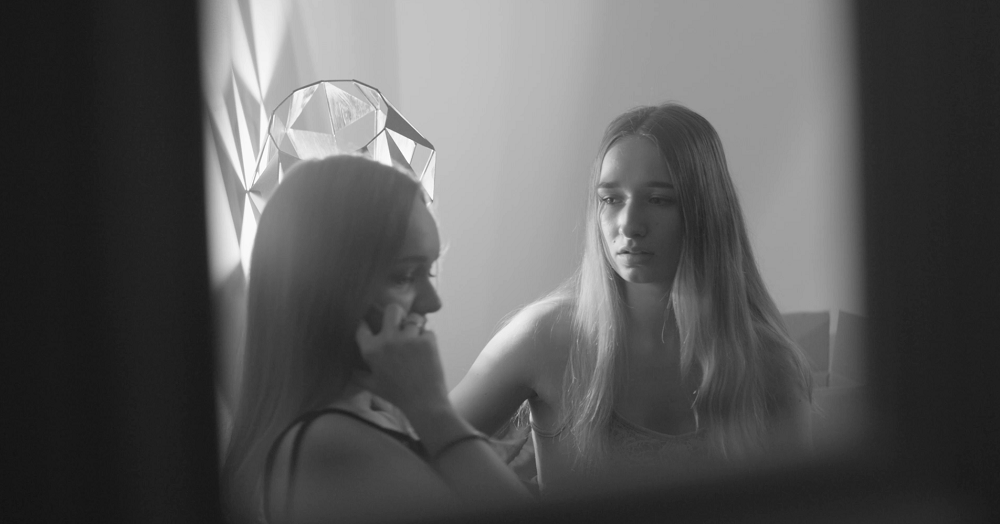
3. How did you communicate with the cameraman?
The director of photography Deep Kadam was the cameraman and we were in constant communication, not only to figure out how to shoot a scene in a way that could be both practical and cool - the shot through the door for the scene with both Regina and Sarah, for example, was his idea -, but also for me to understand how to do my "job" properly: being this my first time ever as a director, I really had no idea how to do anything, including simple things like, for example, saying "Action!, "Cut!", etc. at the right time. It was a blessing to have him work on my film and it is only thanks to him if the film looks beautiful, at least visually speaking.

Lonesome, Tonight
Starring:
Regina Babashaikhova
Sarah Klvanova
Gala Babashaikhova
Written, Edited and Directed by:
Riccardo Varrecchione
Assistant Director:
Ondřej Nový
Sound:
Mohamed Khashafa
Director of Photography:
Deep Kadam
Assistant Camera:
Pranav Bhatt
Graphic Designer:
Sofia Carrascón Garrido
Music by:
Richard J. Fong
Production Coordinator:
Rostyslav Kuzmytskyi
Produced by:
Riccardo Varrecchione
Interview with Riccardo Varrecchione
1. Your project takes a part in our festival. What is your project about?
A girl tries to find a way to spend the night. I think that's enough to say about the plot.
2. What were your requirements for actors to take a part of your film?
The original screenplay only had the girl and her mother as characters, plus I wasn't really set on a specific nationality for them yet, so I was just looking for any actress who spoke both English and a language from Central-Eastern Europe (Russian, Czech, Ukrainian, Hungarian, etc.) even though I would've really preferred to cast a pair of Russian speaking actresses, mostly due to the fact that the main character is based on several people I knew and they all happened to be Russian. For this reason, Regina was one of the "front-runners" from the very beginning, until I officially cast her after a long week of search; at the same time, I also cast her mother Gala as her fictitious mother. As they say: две птицы, один камень.
During the casting process, however, I had the chance to come across several good actresses, including Sarah: I was so impressed by her that, since I didn't cast her as the protagonist, I decided to write her in by adding the second girl character and the whole scene with the last phone call. Best decision I ever made.
Regarding the shooting, instead, I would like to point out the fact that Regina had to go through something like a few dozens different moods throughout the whole film and had to experience my sadism firsthand: for example, we did a 40-seconds take in which she had to laugh non-stop, until I finally said "Cut!". I could've easily done that after only 15-20 seconds, but I really don't see why I should've.

3. How did you communicate with the cameraman?
The director of photography Deep Kadam was the cameraman and we were in constant communication, not only to figure out how to shoot a scene in a way that could be both practical and cool - the shot through the door for the scene with both Regina and Sarah, for example, was his idea -, but also for me to understand how to do my "job" properly: being this my first time ever as a director, I really had no idea how to do anything, including simple things like, for example, saying "Action!, "Cut!", etc. at the right time. It was a blessing to have him work on my film and it is only thanks to him if the film looks beautiful, at least visually speaking.
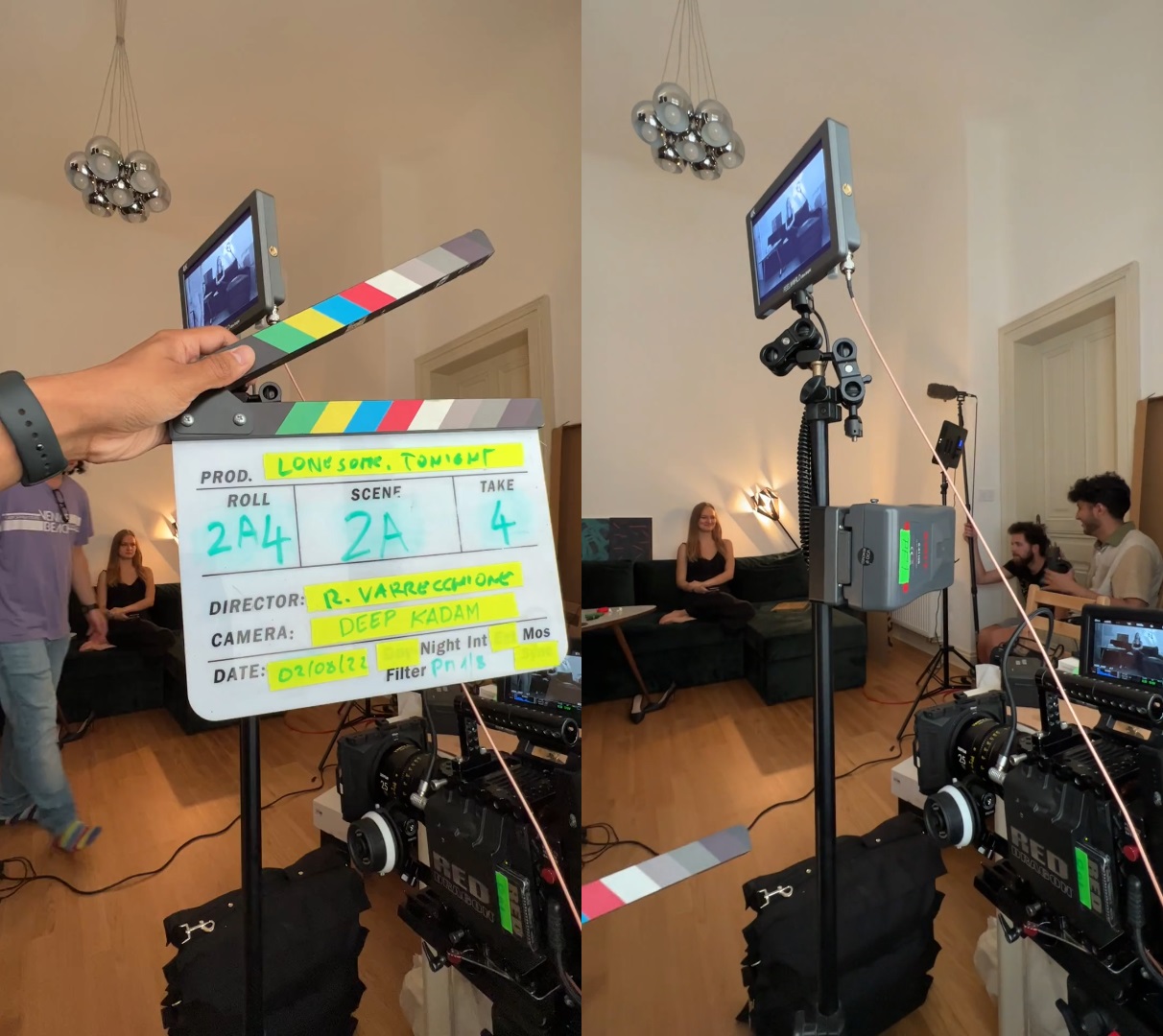
4. What locations did you choose for your project? And why?
I was told from the very beginning of the course that I would only have one day for shooting, therefore I wrote the film specifically for it to be shot in just one location, in order to make things "easier" logistically speaking. Given the main protagonist's character and her personality, I didn't even consider, for example, shooting at just any apartment available after redecorating it accordingly - it would've been too much work, in my opinion -, but I decided, instead, to just look for a ready-made "young woman's apartment": luckily, a friend of mine was kind enough to provide me with her apartment for a full day. I don't think I will ever thank her enough for this huge favor.
5. Why should distributors buy your film?
Well, my goal was certainly not to make a film that distributors could buy, I just wanted to make a good film or, at least, an acceptable debut. If anything, I would prefer to have a producer just giving me money to make more films in the future, however I don't really see that happening anytime soon.
6. What expression elements did you use in your project? How would you characterize your work?
The whole film revolves around a few objects - the phone, the wine, the mirror(s) - which are supposed to emphasize the main character's loneliness and scattered identity, or something like that. I'd say the genre is a mix between a dark comedy, an existential drama and a psychological horror, heavily influenced by the works of David Lynch, Jim Jarmusch and Roman Polanski. I hope my next answers will be less pretentious than this one.
7. At what festivals have you had success? Has the film already premiered? If so, where?
As of today, as far as I know, the film still didn't premiere anywhere. It received a few nominations, but I'm not sure I can call it "success": the biggest result I achieved so far is probably releasing this interview, also due to the fact, of course, that Prague International Film Awards is the best film festival in the whole universe.
8. What motivated you to become a filmmaker?
The idea of not having to work, probably, plus getting to boss people around. For now I've only been doing the second one and only up to a certain point, but a man can dream.
9. Which movies are your favorites? And why?
If I had to jot down an all-time favourites Top 5, I would probably say:
"Deep Red" - Dario Argento
"Mulholland Drive" - David Lynch
"The Great Beauty" - Paolo Sorrentino
"Heaven's Gate" - Michael Cimino
"Once Upon a Time in America" - Sergio Leone
I wouldn't really know, however, why these specific movies are my favourites. You should probably ask my therapist.
10. What topics do you like to deal with in your work?
Well, since this is only my first film, I have no way to say for sure what kind of topics I like to deal with: both this film and my projects for future films, though, quite share the same topics, that is to say loneliness, incommunicability, search for identity and so on. Happy stuff, basically.
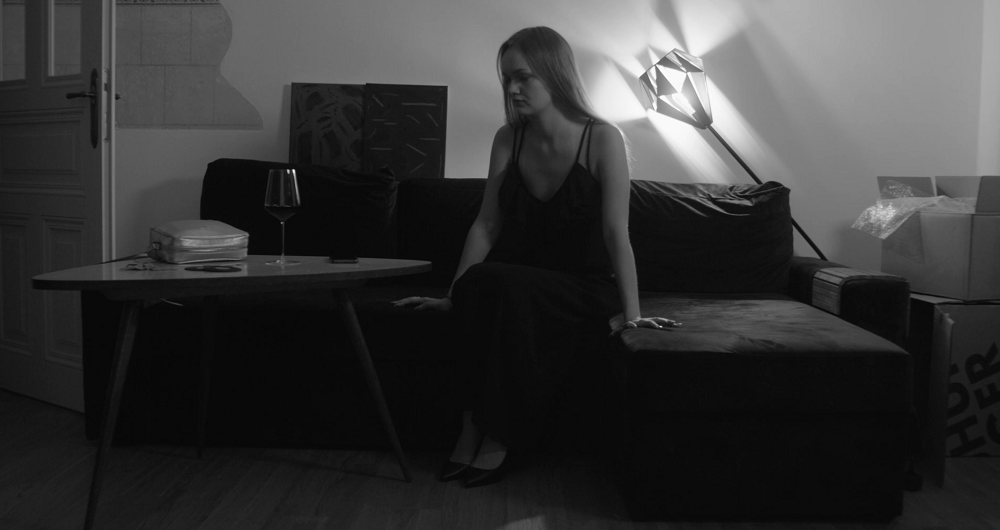
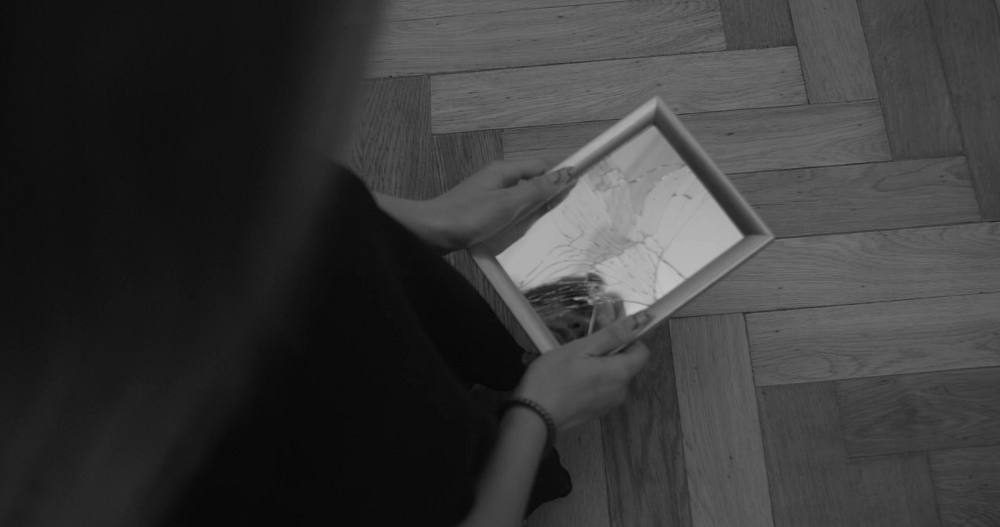
11. What role does music play in your film?
Aside from writing, directing, editing and producing the whole thing, I also recorded the film's soundtrack, under the pseudonym Richard J. Fong - a Simpsons reference that no one caught -, by improvising a couple of tunes I had in mind on an eletric guitar, in a style that was inspired by the music in David Lynch's works. As a proof to my veneration for this artist, the film is dedicated to Angelo Badalamenti and Julee Cruise, a huge part of the soul of Twin Peaks, who both left us in 2022.
As can be easily guessed, the film's title comes from Elvis Presley's hit song "Are You Lonesome Tonight?", which is also mentioned in one scene; it was the only way to put the song in the film somehow, since, strange but true, I didn't have enough money to pay royalties. It would've been cool to put it in the credits, though, like I did for the rough cut I had made for the school's screening: the result was AMAZING.
Even though, of course, a film can be good even without any soundtrack, I think it's a pity not to use such a terrific asset, which, I believe, can even turn an okay film into a good film, or a good film into a great film, and so on. Personally, I even already imagined several scenes for my future films only by hearing a song, thinking: "Yup, this song would be great for a movie" and building the whole scene around it. According to Paolo Conte, my favorite singer-songwriter - who, coincidentally, drew a lot of inspiration from movies to write his songs -, Italian director Mario Monicelli apparently used to tell his actors: "If you have to shoot a scene in which it's raining, don't do anything. Rain will do the acting for you". I believe the same can be said about music: if you pick the right song, the scene will be more likely to work, regardless of what you're showing.
So, to sum it up: music plays a great role in my film and, hopefully, it will do the same in my future films as well.
12. What genre do you like to shoot and why?
Again, since this is my first film, I cannot really say exactly what genres I like to shoot. All I can say, however, is that I'm a big fan of mystery, surrealism and metacinema, which hopefully will all be included in my first feature film.
13. What project would you like to shoot one day, what would it be about?
There are several projects I would like to shoot one day, like, for example, a crime story based on a novel by a popular writer, a historical/biographical drama, a film about football, a porn/erotic movie and, of course, the aforementioned mystery/surreal/metacinematographic thingy.
14. How has COVID affected your film life?
I'm not sure if I mentioned this before, however: this was my first film, therefore my "film life" only began in summer 2022. Funnily enough, though, COVID still managed to make its way into this film's production, which barely lasted a month or so: Regina got COVID a few days after I had officially cast her and I couldn't see her for a week, which was quite a bummer, since we could've definitely used a couple more rehearsals together.
15. What do you do if you're not thinking about a movie? What are your hobbies?
First of all: I'm ALWAYS thinking about movies, either the ones I watch or the ones I plan to make. Even listening to music, for me, is mostly in function to finding good songs to put in films.
Aside from that, I like to sing, play a few instruments (guitar, bass, kazoo) and write silly songs in Italian. I also like to paint a litle bit, the ugly artworks that can be seen in the film are actually mine. Last but not least, I love football and I hope to live long enough to see Juventus win the Champions League, which is also an elaborated way to say that I wish to be immortal. I would also like to talk about my two other passions, Football Manager and psychedelics, but let's keep these topics for future interviews.
16. What projects do you plan to shoot in the future?
I plan to shoot a remake of "Lonesome, Tonight" in about thirty years, by following the original script and shotlist and, of course, by using Elvis Presley's "Are You Lonesome Tonight?" in the credits.

